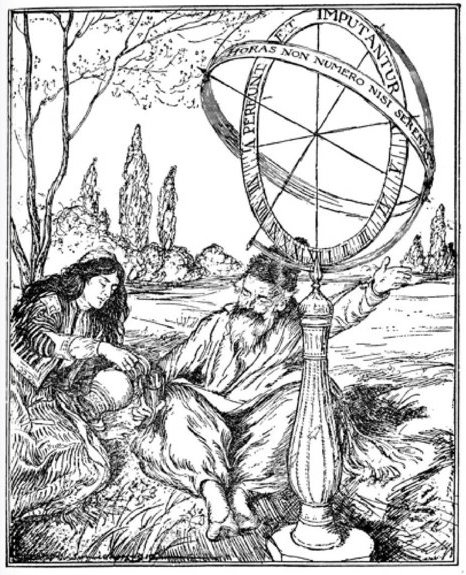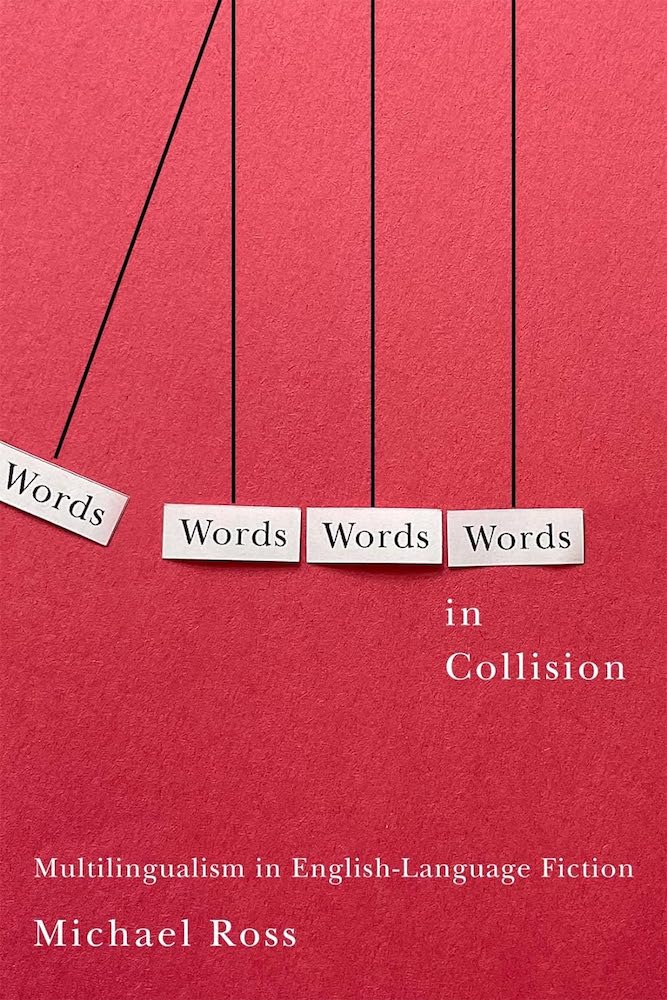This has been adapted from a review first published under the title of "Eastward Ho!" in the Times Literary Supplement of 10 November 2023. Page numbers, illustrations, captions and links have been added: click on the images to enlarge them, and for more information about them.

Setting off across the globe on their explorations, missions and colonial ventures, the Victorians left the door wide open to other languages and literatures. The age-old process of cultural enrichment through contact with different countries accelerated: translation boomed, as the provision of Eastern masterpieces for English-speakers was viewed in idealistic as well as commercial terms, as a means of introducing them to important writers, thinkers and belief systems elsewhere. More recently, immigration and cheaper travel, and media of all kinds, have opened the door even wider. The backlash of insularity and linguistic purism has been powerless to close it. Hats off to two scholars who shed new and positive light on the results, both on the bookshelf, in Alexander Bubb's case, and in individual books, which help to lift us out of what Michael L. Ross calls, "narrow entrenched grooves of conviction and speech" (192).
One impetus for the Orientalism of the nineteenth century came from Edward Fitzgerald's translation of the Rubaiyat of Omar Khayyam. Picked up from a stall in St Martin's Lane, penny copies of it were shared among members of the Pre-Raphaelite circle. In a letter to the Times after Swinburne's death, George Meredith described how he and the younger poet sat on the grass, declaiming alternate stanzas to each other: such was the sense of exhilaration that accompanied this widening of horizons. In a somewhat similar way, Bubb's own interest was piqued when he came across a second-hand copy of the Rubaiyat, extensively annotated by its owner. He went on to collect a hundred or so books of this kind, making up a useful personal "Archive of Victorian Translations and the Readerships" (AVaTAR for short: see bibliography). In this new study, Asian Classics on the Victorian Bookshelf, he explores other, more established archives as well, looking particularly at commonplace books to determine how widely people read, and how they responded to these translations.
The findings are surprising. The Rubaiyat and the Arabian Nights, the latter well-established even before the Victorian age, were far from the only Asian classics available. Thanks to popularisers as well as scholars, translations of the Quran, the Analects of Confucius, the Bhagavad Gita, the Ramayana, the Shahnameh and others could all be found in bookshops, libraries, schools and homes. Bubb's personal collection alone, which includes some collaborations, features the work of more than seventy different translators, among them fifteen women. A few of the names are familiar. One of the women, for example, was Gertrude Bell, who, along with a number of others, translated the ghazals of the Persian lyric poet, Hafiz (or Hafez). So important politically were Bell's other achievements that this one rarely gets enough attention. Bell was eminently qualified to translate these works, but others, like Helen Zimmern, who in 1883 produced The Epic of Kings, an abridged version of the Shahnameh, made no apologies for not even knowing the source language (again, Persian). A naturalised British citizen by this time, Zimmern was German by birth, and worked from an earlier translation in French. There is a copy of the Shahnameh, thught to have been acquired in 1830-37, in the Royal Collection.


Left: "Ah, fill the cup," Edmund J. Sullivan's illustration for verse 38 of the Rubayait. Right: The legendary Iranian King Zal looks raptly at Rudabeh: the two lovers become the parents of another great legendary figure, the warrior Rostam [the hero of Matthew Arnold's long poem, Sohrab and Rustum, published in 1853]. An etching of this scene by Laurence Alma Tadema faces p. 49 in Zimmern's version of the epic Shanahmeh.
The range of readers, from schoolchildren to royalty, was even wider than the range of translators. The Society for the Diffusion of Useful Knowledge (SDUK) and its library, edited by Charles Knight, together with Sir John Lubbock's programme of reading for the Working Men's College, and other competing lists, presented them with a whole "banquet of knowledge" which included an "oriental buffet" (91). This certainly gave work to the translators, but did the reading public really partake of the feast? Some members of it did. Moving on a little, for instance, Bubb finds that young Nellie Turner received the Quran as her school prize in mathematic in 1914, and at some point annotated it carefully, drawing out similarities with Christianity, such as:"Christian: Christ son of God / Moham: Christ apostle of God p. 438" (qtd. p. 110). That very year, incidentally, The Story of Mohammed was published in a "Heroes of All Time" series, itself a useful source for school prizes. Not all the books on the Victorian and early twentieth-century bookshelf would actually have been read: uncut pages tell their own story. Still, people had, quite literally, bought into the idea that a sound education requires at least a nodding acquaintance with other cultures and religions. With chapters on circulating, canonizing and publishing as well as translating and reading, Bubb approaches his subject from every angle, in an engaging style that conveys his enthusiasm for it rather than the weight of his research.

But translation is not always necessary, or even the best option. Michael Ross examines the growing tendency to leave other languages untranslated in literary works. Some words or expressions might have seemed simply untranslatable, or the language involved so fundamental to the speaker's identity, or the theme, that it demanded direct representation. The resultant "linguistic interplay" can contribute greatly to a work's dramatic impact (198, Ch. 9, n.1). Ross looks at this phenomenon in a whole range of English literature, from Shakespeare's Henry V to Arundhati Roy's latest novel, The Ministry of Utmost Happiness. Along the way, his attention to foreign language interpolations produces enlightening entries to individual works by Sir Walter Scott, the Brontës, Henry James, Lawrence, Chinua Achebe and others. The effect on characters and readers alike, he suggests, can be transformative, helping to foster cross-cultural empathy. Even Henry V, that standard-bearer of St George, has a stab at speaking French, suggesting that the language of the enemy, so often derided in the play, still has something to recommend it — and in the last act, the promise of half-French progeny from his marriage to the French princess, Katherine, is confirmed by the Chorus's mention of the future Henry VI.

Portrait of Monsieur Héger, frontispiece to the Harper edition of Villette of 1902.
French looms large in Ross's first few chapters. Critics have long acknowledged its role in Charlotte Brontë's Villette, where it vibrates with the novelist's own intense attachment to her Belgian tutor, Monsieur Héger: "I love French for your sake with all my heart and soul" she said once in her correspondence with him (qtd. p. 46). Translating it, or even marking it off from the narrative by putting it in italics, would only have weakened the pull that it exerts on the novel's heroine, Lucy Snow, in her encounters with the fiery M. Paul at the Pensionnat. In the end, such passion does trump "the prose of English" here, "demolishing the wavering protagonist's carapace of insularuty" (66). Ross feels that Lucy's new cosmopolitanism, while more developed than that of Brontë's earlier heroines, is still an emergent rather than a flourishing one. Not everyone would agree, but Lucy is certainly less flamboyant in the way she expresses it than Miriam Rooth in Henry James's The Tragic Muse. This is one of several novels by James discussed in the next chapter, and the one which, like Villette, has more French in it than any other of its author's works. Miriam proclaims defiantly, "I'm of the family of the artists — je me fiche of any other!" (qtd. p.87), and rejects a marriage proposal from the English diplomat, Peter Sherringham, at the end of the novel. Like Lucy, she will carve out her own future in her adopted country.
Ross finds it disappointing that D.H. Lawrence, for all his own language skills, eventually retreated from such cosmopolitanism. Again, some might disagree, finding the contrast in Lady Chatterley's Lover, between upper-class English and the Midlands dialect of the gamekeeper Mellors, as significant a clash of tongues as any. More recently, however, some authors have deployed dialogue to capture the interactions of a variety, indeed a multiplicity, of cultures. The countries that concern Ross most in the second part of Words in Collision are the Caribbean, Nigeria and India. Among his examples of multivocal fiction set in these areas are Jean Rhys's Wide Sargasso Sea and Chinua Achebe's Things Fall Apart. In the former, a prequel to Jane Eyre, Caribbean patois is pitted against English in a way that underlies and underlines the incompatibility of the central characters, leading not simply to their estrangement but to the self-alienation of Annette/Bertha, and eventually to her incarceration in Mr Rochester's attic. To similarly dramatic effect, Achebe enlists our understanding of different communities in Nigeria, and of the flaws in both, by inserting Igbo elements into his narrative.
But perhaps it is when Ross comes to India, teeming with languages as well as people, and discusses the work of Anita Desai and Arundhati Roy, that we fully understand the part language can play in preserving our own culture, and relating to other cultures. Ross ends with a timely warning against sitting back and letting the wholesale adoption of "dominant Western norms of discourse" halt this process (192).
Bibliography
Books under Review
Bubb, Alexander. Asian Classics on the Victorian Bookshelf: Flights of Translation. Oxford: Oxford University Press, 2023. 256 pp. £78.00 ISBN: 978 0 19 886627 5.
Ross, Michael L. Words in Collision: Multilingualism in English-Language Fiction. McGill-Queen's University Press. 216 pp. £89.95. ISBN: 978 0 2280 1697 7.
Other References
AVaTar — Asian Literature in the Victorian World. Web. 1 June 2024.
The Epic of King: Stories Retold from Firdusi. London: Fisher Unwin, 1883. Internet Archive, from a copy in the New York Public Library. Web. 1 June 2024.
The Shah Nameh. Royal Collection Trust. Web. 1 June 2024.
Created 1 June 2024